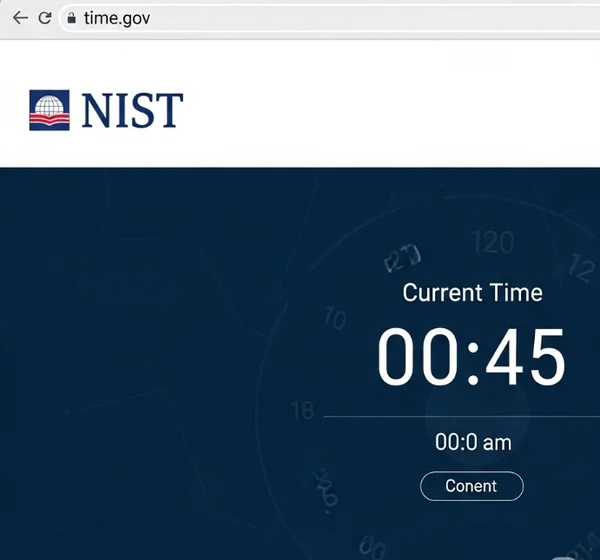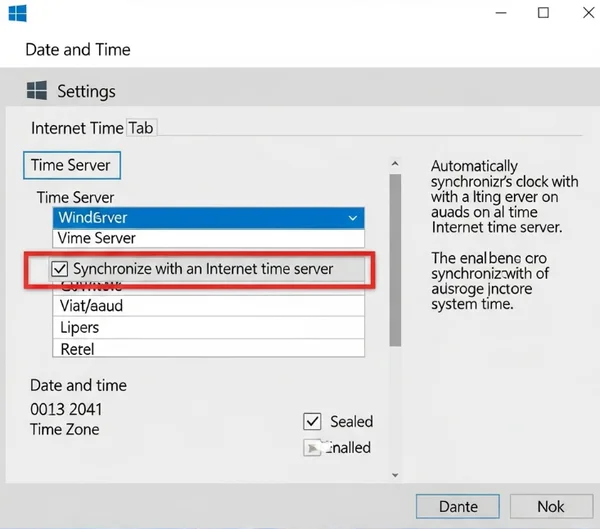Is Your Online Digital Clock Accurate? Verify the Time
Are you wondering if your online clock is correct? In today's fast-paced digital world, relying on accurate time is crucial, whether you're managing deadlines, coordinating meetings, or simply trying to catch the next bus. But how can you be sure that the online digital clock you're using is actually showing the right time? Experience our accurate online digital clock!
Understanding Time Sources: Where Does Your Online Clock Get Its Time?
To understand how to verify time accuracy, it's essential to know where your online clock gets its information. Most devices rely on a complex system to stay synchronized.
Network Time Protocol (NTP): The Backbone of Online Time
The Network Time Protocol (NTP) is the most common protocol used to synchronize computer clocks over the internet. NTP servers communicate with each other to exchange time data and ensure that all participating clocks are synchronized to a highly accurate reference time.
The Role of Atomic Clocks in Time Dissemination
Ultimately, the accuracy of NTP relies on atomic clocks, the most accurate timekeeping devices in the world. These clocks use the resonant frequency of atoms to measure time with incredible precision. National standards bodies, like the National Institute of Standards and Technology (NIST) in the US, operate time servers that are directly synchronized to atomic clocks. You can learn more about atomic clocks on the NIST website.

Potential Sources of Inaccuracy: Latency, Server Issues, and Browser Settings
While NTP and atomic clocks provide a robust system for time synchronization, various factors can introduce inaccuracies. These include network latency, server issues, and even your own browser settings.
Quick & Easy Methods: How to Check Your Online Clock's Accuracy
Luckily, there are several quick and easy ways to verify time accuracy:
Method 1: Comparing with an Atomic Clock Website (e.g., time.gov)
One of the simplest methods is to compare your online digital clock with an atomic clock website like time.gov. This website is maintained by NIST and displays the official US time, synchronized to atomic clocks.

Method 2: Using Online Time Synchronization Tools
Several time synchronization tools are available online that can automatically check and synchronize your computer's clock with reliable internet time servers. These tools can help correct minor discrepancies.
Method 3: Cross-Checking with Multiple Online Clocks
For a quick spot check, compare the time displayed by your online digital clock with several other online clocks. If you notice significant differences, it may indicate a problem with your current clock source.
Advanced Techniques: Digging Deeper into Time Verification
For those who need even greater certainty, here are some more advanced techniques:
Understanding Time Server Hierarchy
NTP operates on a hierarchical system, with Stratum 1 servers directly connected to atomic clocks, and subsequent strata relying on these primary sources. Understanding this hierarchy can help you identify more reliable clock source options.
Analyzing Network Latency and Its Impact on Time Accuracy
Network latency, the delay in data transmission, can affect the accuracy of time synchronization. Tools for measuring ping and traceroute can help you assess latency to different time servers.
Using Command-Line Tools (e.g., ntpq -p) for Technical Verification
Advanced users can utilize command-line tools like ntpq -p (on Unix-like systems) to query NTP servers and analyze time synchronization status. This provides detailed information about server offset, jitter, and other relevant parameters.
Troubleshooting Inaccurate Online Clocks: Common Issues and Fixes
Even with the best efforts, your online digital clock may still display inaccurate time due to various factors.
Browser Cache and Cookies: How They Can Affect Time
Old cached data and incorrect cookies can sometimes interfere with the proper functioning of online clocks. Clearing your browser's cache and cookies may resolve these issues.
VPNs and Time Zone Conflicts
VPNs can sometimes cause time zone conflicts, leading to inaccurate time display. Ensure that your VPN settings are correctly configured to your current location.
Operating System Settings and Time Synchronization
Your operating system also has its own time synchronization settings. Make sure that your OS is configured to automatically synchronize with a reliable internet time server. You can usually find these settings in your system's date and time preferences.

Why Accurate Time Matters: Real-World Implications
The accuracy of your online digital clock is not just a matter of convenience; it has real-world implications:
Finance: The Critical Role of Accurate Time in Trading
In financial markets, even milliseconds can make a difference. Accurate timekeeping is essential for high-frequency trading and other time-sensitive financial operations.
Science: Accurate Timekeeping in Research and Experiments
Scientific research often requires precise time accuracy for data logging, experiment synchronization, and other critical tasks.
Everyday Life: Punctuality, Scheduling, and Coordination
In our daily lives, accurate timekeeping is essential for punctuality, scheduling appointments, and coordinating activities with others. To help manage your time effectively, consider using a reliable online time tool.
Staying Accurate in a Digital World
Verifying the accuracy of your online digital clock is a simple but important step in ensuring that you are relying on the right time. By understanding the sources of time, using verification methods, and troubleshooting common issues, you can stay accurate and on time in today's digital
Frequently Asked Questions About Online Clock Accuracy
How often should I check my online clock for accuracy?
It's a good practice to check your online clock periodically, especially if you rely on it for important tasks. Checking it weekly or monthly can help you catch any potential discrepancies early on.
What is NTP, and why is it important?
NTP (Network Time Protocol) is a protocol that allows computers to synchronize their clocks over a network. It is crucial for ensuring accurate time synchronization across the internet.
Can VPNs affect the accuracy of my online clock?
Yes, VPNs can sometimes interfere with your time zone settings and lead to inaccurate time. Make sure your VPN is configured correctly to avoid this issue.
Are all online clocks equally accurate?
No, not all online clocks are equally accurate. The accuracy depends on the clock's time source and the reliability of the time server it's using.
What are the best websites for verifying time accuracy?
Some of the best websites for verifying time accuracy include time.gov (NIST) and other websites maintained by national metrology institutes.